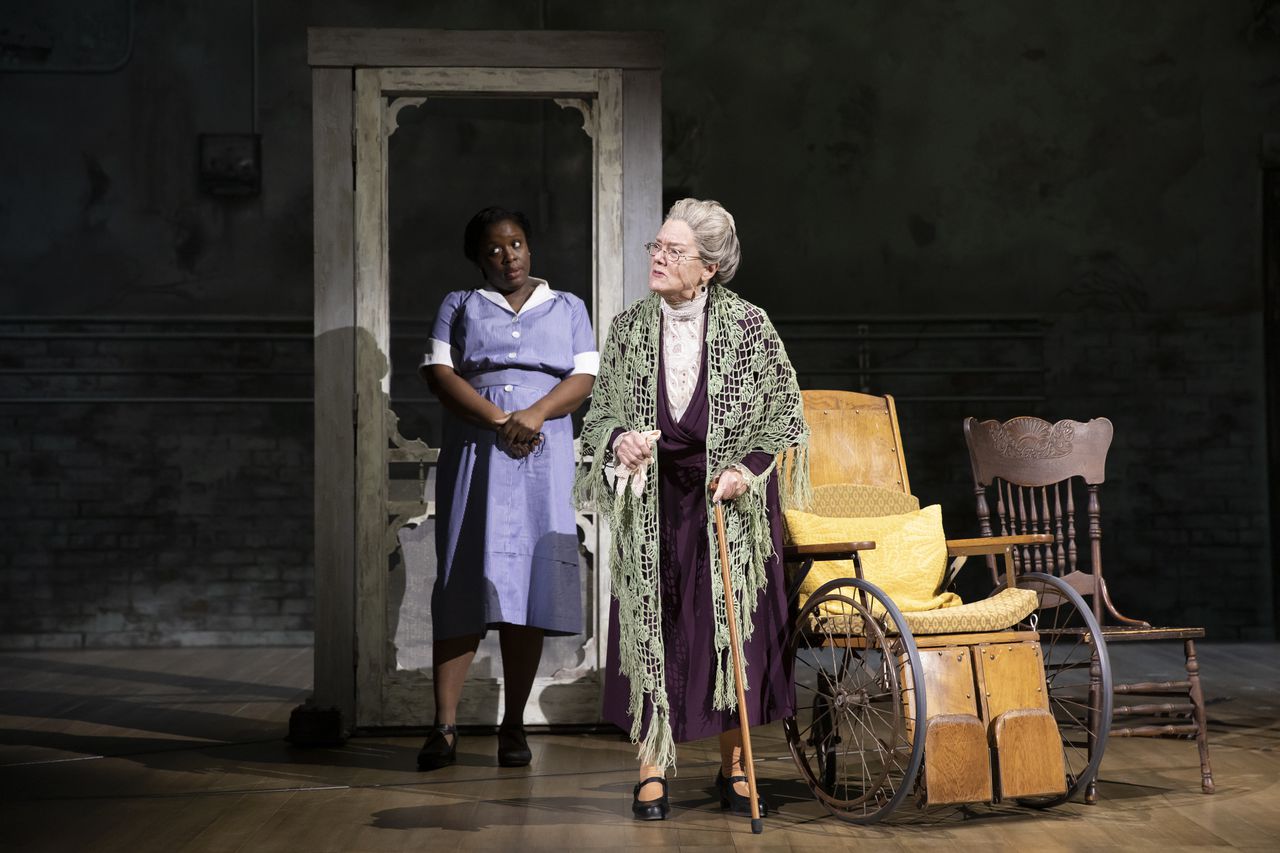âTo Kill a Mockingbirdâ star on Atticus Finch, book bans and her Alabama hometown
When Mary Badham talks about “To Kill a Mockingbird,” people listen.
The Alabama native, 71, has a unique perspective on Harper Lee’s famous novel and the impact it’s had on the world. Badham, who grew up in Birmingham, was cast in a pivotal role in the 1962 movie version of “Mockingbird,” earning an Oscar nomination for her portrayal of Scout Finch, the scrappy, endearing daughter of a fair-minded lawyer in the fictional town of Maycomb, Alabama.
Badham’s life has been intertwined with “Mockingbird” ever since, and the story’s themes — focusing on racial prejudice and social justice, family and community, ignorance and compassion — have been important in shaping her ideas and perspectives.
Badham has spent decades discussing Lee’s novel with interested readers, from entertainment bigwigs to just plain folks. She visited her hometown recently to do just that, speaking to a group of students at the downtown branch of the Birmingham Public Library.
Badham has a new chapter in her personal journey with “Mockingbird,” appearing in a national touring production of the hit Broadway play, which was adapted from Lee’s novel by Aaron Sorkin. This time, Badham takes on the role of Mrs. DuBose, a mean-spirited neighbor who tangles with Scout and her family, providing a crucial learning moment for the girl.
Badham has been traveling with the show for more than a year, as part of a cast that includes Richard Thomas (of “The Waltons” fame) as Scout’s father, the upright Atticus Finch. The tour comes to Birmingham on Nov. 14-19 for eight performances at the BJCC Concert Hall.
AL.com sat down with Badham when she visited the library in Birmingham, catching up with the cordial star in anticipation of her hometown performances on the “Mockingbird” tour. (Note: The interview below has been lightly edited for length and clarity.)
When they asked you to play Mrs. DuBose in the national tour of “Mockingbird,” what was your initial reaction?
Mary Badham: “You’ve got to be kidding.” Because I’d never done theater before. I didn’t know anything about the theater. I didn’t know anything about anything. I didn’t know if I could say the N-word, and be as ugly and mean as she is. But they talked me into coming to New York and meeting the cast and crew, and I did. We had a table read and they liked what I did with it, and everybody laughed, and I was like, “OK, well, I guess I’m in.” And Aaron (Sorkin) wrote me a little note, and said he liked it, so yeah.
Was there a part of you, when you were asked to play Mrs. DuBose, that said, “Wait, I’m Scout”?
No, I never gave Scout a thought. This was strictly on that particular character and I didn’t know if I could pull her off
Mrs. DuBose isn’t the most sympathetic character.
No, she’s not sympathetic at all. She’s foul and vicious. I have to say the N-word, and I didn’t know if I could do that, and I went to my African-American friends and I’m like, “Look, I need help with this, because I don’t know if I can do this or not.” And they said, “Mary, this is important. If they want you, go for it.” I was like, “OK.”
There’s that famous phrase in “To Kill a Mockingbird,” about walking in somebody else’s shoes. To be in this play, you have to walk in Mrs. DuBose’s shoes. In the book, she becomes a little more sympathetic because we learn more about her and her struggles. Did that help you develop the character or identity with her?
No, because we never see that side of her in the play. She’s pretty hateful the whole time.
But maybe it’s interesting or fun to play a villain?
It’s kind of fast and furious with Mrs. D. It’s fun.
Mary Badham, foreground, portrays Mrs. Henry DuBose in the national tour of “To Kill a Mockingbird.” Badham, a Birmingham native, earned fame for her portrayal of Scout Finch in the 1962 movie version of Harper Lee’s novel. Dorcas Sowunmi, in the background, is an ensemble member of the touring cast. (Courtesy photo/Julieta Cervantes)
This is your theater debut, but your family has roots in the theater, correct? Your mother, Mary Hewitt Badham, appeared in Town & Gown theater productions in Birmingham.
Mom was very talented. She worked for WBRC, and she had a radio program, “An Hour with Mary Badham,” where she interviewed people in town and all that. She did Town & Gown theater, and she did opera with the college. She was multi-talented, and a bookaholic. I spent a lot of my years in life growing up in a library.
Now that you’re touring with “Mockingbird,” do you feel like you’ve become a theater person?
Oh, yeah. I feel totally comfortable. The cast and crew are wonderful. I mean, we just have a good time, and we all take care of each other and look out for one another, and that’s important when you’re on the road. And it’s fun. I mean, I now know why people love the theater, because you can interact with the audience, and we do the whole thing all together. I love to be able to play with the audience. That’s great fun.
You probably get applause when you walk on stage. People know it’s you, and they’re “Whoo, Mary Badham!”
No. A lot of times people don’t know who I am. They don’t recognize me at all. Once you see me in full makeup, you’ll understand why. And it’s fine. Now, they go nuts when Richard (Thomas) walks on the stage. And we always get this at the end, it’s almost every night that we get, “Good night, John-Boy!” He’s a great Atticus and he’s done a fabulous job.
Does he ever respond to the people who yell, “Good night, John-Boy”?
Oh, heavens no. He’s a pro. He knows where the line is. … He’s amazing. He’s really, really good.
Did it matter to you who was playing Atticus on the tour? Did you think, “Oh, Richard Thomas, he can handle it”?
Yes. He would have been one of my first picks, simply because people know him as one of the Waltons. He became so ingrained in so many people’s families. And just knowing the type of person that he is, through word of mouth, that’s he’s just this real gentle soul, and funny and light, and that he’s really a good person.
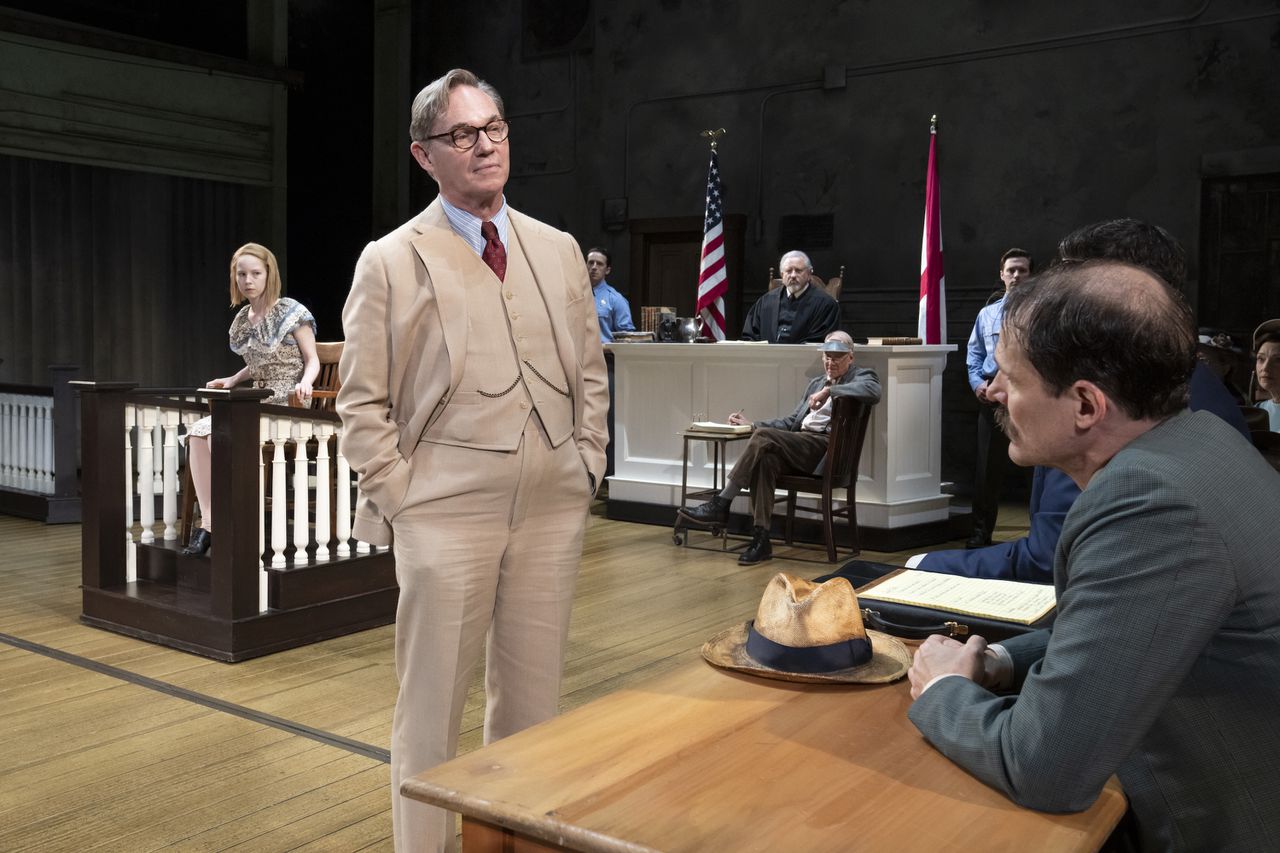
Richard Thomas as Atticus Finch, center, in a courtroom scene from the national tour of “To KIll a Mockingbird.” Mariah Lee, left, portrays Mayella Ewell. (Courtesy photo/ Julieta Cervantes)
In the public’s mind, it’s difficult for anyone to follow Gregory Peck, who won an Oscar for his movie portrayal of Atticus. Do you ever compare and contrast performances?
No. With each actor, with each role that they play, it’s important to let that actor do what they will with that character. If it’s way out of line, yeah, tweak it. But obviously they’re worked very hard to come up with that particular interpretation. Yeah, if they’re off base, it’s one thing. But for the most part, let it be, let them do it. And it’s not going to be the same. No two people are the same. But that doesn’t mean it’s bad. It’s different. And that’s what art is, it’s that reinterpretation. That’s where the education comes in, to see that interpretation appreciated for what’s there.
In this theater version of “Mockingbird,” some key characters are different than they are in the book. What are your thoughts on that?
I just love it, because I think it’s a modern, fresh look at this work. Aaron (Sorkin) has just, you know, he’s amazing. And because it’s fast and furious, in a lot of ways. If you’re familiar with “The West Wing” and his writing, I mean, that’s so right on point. And his heart and soul goes into this, as well as with “Mockingbird.” I love it, because it’s brought a fresh look at it, where people can read the story and the importance of it.
So Aaron Sorkin’s adaptation gives people new talking points on “Mockingbird”?
Yes, new talking points. It needs discussion right now. We just, really, in this country, need discussion of this book.
You’ve said it’s a shame that some people are banning “Mockingbird,” or trying to ban the book, in libraries. Tell us more about that.
That’s just ignorance on their part, in my view. When you start doing that, it’s a control thing. It’s a male-dominated control thing. And I just don’t have a whole lot of patience with that anymore.
You’ve also said that some people trying to ban the book haven’t read it; they just object to it on whatever principle they choose.
That’s true, whatever thing they kind of come up with. There’s so many ways of looking at this, with this issue. But for the most part, I just don’t have a whole lot of patience with it. You know, people are going to take from it what they will. But, in some ways, OK, you want to ban it, that’s going to be the first book those kids are going to read. Because I can remember having banned books when I was growing up. “You can’t read that.” You know, books would be torn in pieces and passed around. “You gotta read this! You gotta read this!”
Whether you ban it or don’t ban it … To me, it’s just, there are people right now in this country that want to say no. And you can’t do this, and you can only do what we say you can do. Why? Who made you in power, in control?
Is there one thing you want audiences to leave with after seeing ”Mockingbird” on tour?
Love everybody until they give you a reason not to. Take care of one another. We’re not on this planet for very long. We have a very short life in the scheme of things, and we need to, each of us, be the best that we can be. Take care of our kids, teach our kids to come with an open heart to other people. And to help when we can help.
Does it have any special resonance or meaning for you to perform this play in Alabama?
Yes, definitely. Because this has been — it’s hard to put into words — all of the discussions in this book, all of the different problems that we’re having, they’re all in this book. Everything that we have, whether you want to talk about racial issues, whether you want to talk about legal issues, whether you want to talk about family, single-family parenting, mental issues, we’re still dealing with all of these things. Physician assisted pain problems, you know, prescriptions and that. All of these things, child abuse, it’s all in there. It’s all in this one simple little book.
If I can help, whether it’s in Alabama or any state, to look at these issues fairly, and to try and make things better, that’s why I’m here, is to help people come together on these issues and make it better.
You have a unique platform with “Mockingbird.”
I do. It’s a unique platform and I’m very thankful to be a part of it. My job is to do a good job at bringing this to the world, and keeping it going so that we can have these discussions, so that we can stop these problems that we still just keep having.
Do we need that in Alabama more than elsewhere?
I don’t know, because I’ve seen such big leaps and bounds in Alabama. I’m so proud of this state for having taken major steps forward. And you go to certain parts of Alabama, and I can’t believe that I’m in Alabama, because it’s so cosmopolitan, they’re so open. I mean, I was sitting in a restaurant in Huntsville, Alabama, and I heard like five different foreign languages in that one restaurant. I went to dinner here in Birmingham and heard two different languages. I mean, people are coming to the state. It’s a great state to come to for innovation. And look at all the famous personalities who have come out of this state. We’re really blessed with a great number of very, very intelligent people who can carry the state way beyond this century.
Do you ever feel a sense of nostalgia when you perform in the play? “Mockingbird” has been such a big part of your life. Or is this theater experience so different it’s not nostalgic for you?
It’s not really nostalgic for me; it’s a new experience. I take things as they come, and I work through them as I can. I don’t always do a great job with it, but the point is, I try. And that’s all anybody can do, is to do their best, to give it their best shot and hope for the best. … I’m a now person. I deal with the day as best I can, as it comes to me.
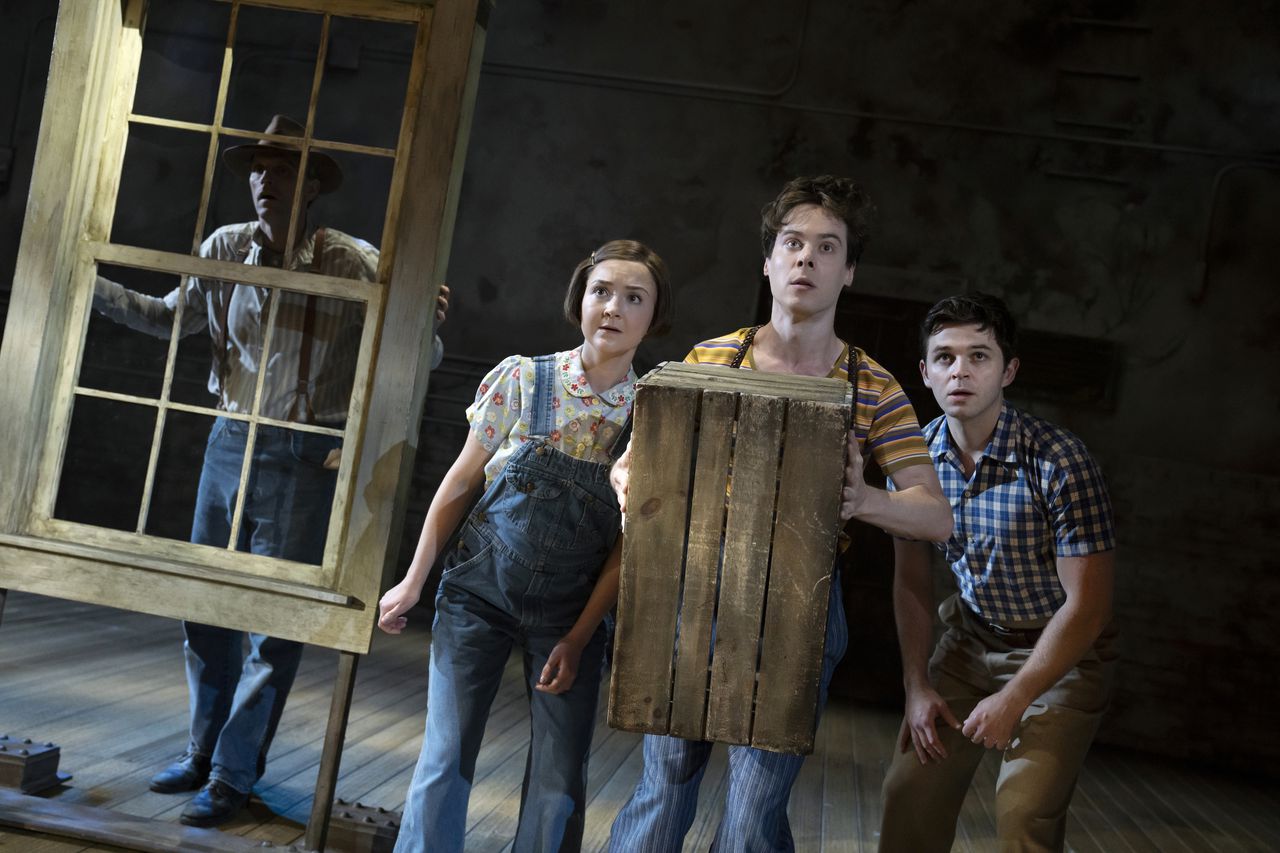
From left, Travis Johns as Boo Radley. Maeve Moynihan as Scout Finch, Steven Lee Johnson as Dill Harris and Justin Mark as Jem Finch in the national tour of “To Kill a Mockingbird.” (Courtesy photo/Julieta Cervantes)
When you’re in Birmingham, do you ever drive by the house you lived in as a child?
I love coming and seeing the old places. But it’s sad, because it’s all gone. Three-quarters of my life went under the bulldozer. My grandfather’s railroad station, which was one of the most beautiful buildings in Birmingham. They tore that down. The Tutwiler hotel, they blew that up.
(Note: The original Tutwiler Hotel was built in Birmingham in 1914, at the corner of 20th Street and Fifth Avenue North. The hotel closed in 1972 and was demolished in 1974. The current Tutwiler Hotel opened in 1986.)
So much of the architecture of Birmingham is gone. I mean, I’m looking around at all these buildings, it’s like, it’s all new. Very little is left. The great cities of the United States that I’ve been in, and the ones that are doing the best, are the ones that still have a lot of their old architecture, because it gives something for them to see.
But, at the same time, I understand. Birmingham has changed from being a steel company town to being a medical community. It is one of the top medical places in the United States. We’ve got some of the most innovative doctors here that are doing incredible work. So, you know, that’s life. Change is life. You’re never going to have things the same. And if you think it’s going to stay at the same, you better get on a different train, because it’s not happening.
You grew up in Birmingham during the 1960s and saw segregation in action. You’ve talked about witnessing that as a child, and the impact it had on you.
I’ve had tough moments here. (The city’s) got a tough history. It’s still going through a tough history. But if this can help, and help bring us together, in a more mindful, compassionate way, then it’s a good thing.
Do you have any timeline in mind for how long you’ll tour with “Mockingbird”?
No. I take one day at a time. Do the best I can with that day. At 70 years old, you know, I could be dead tomorrow. But I’ve got a lot of stuff I’d like to do. I’ve got grandbabies I’d like to really have time with. I think that’s one of the biggest things, is having time with my kids. Because I have worked since I was 10 years old. I continually worked. And that’s hard, but I come from a working family. I mean, that’s just life, you know, you’ve got bills to pay and things to do. But there has to be, I hope, a time where I can just be with my kids.
Where is home for you now?
Home is Virginia. We’ve got a farm there, and we’ve got a little tiny cottage down in Florida. But I think we’re probably going to end up selling that, and move to Tennessee with our daughters, so we can be with our grandbabies. That’s the dream.
Do you still have family in Birmingham?
I think there’s some great-nieces or nephews. Yes, I think there’s still some family here. My brother and his family are all up in Huntsville, so that’s why I’m familiar with Huntsville. … I don’t keep in touch with everybody like I probably should. But people are so transient nowadays. Nothing stays the same, like I said before. It just changes. You have to go with it.
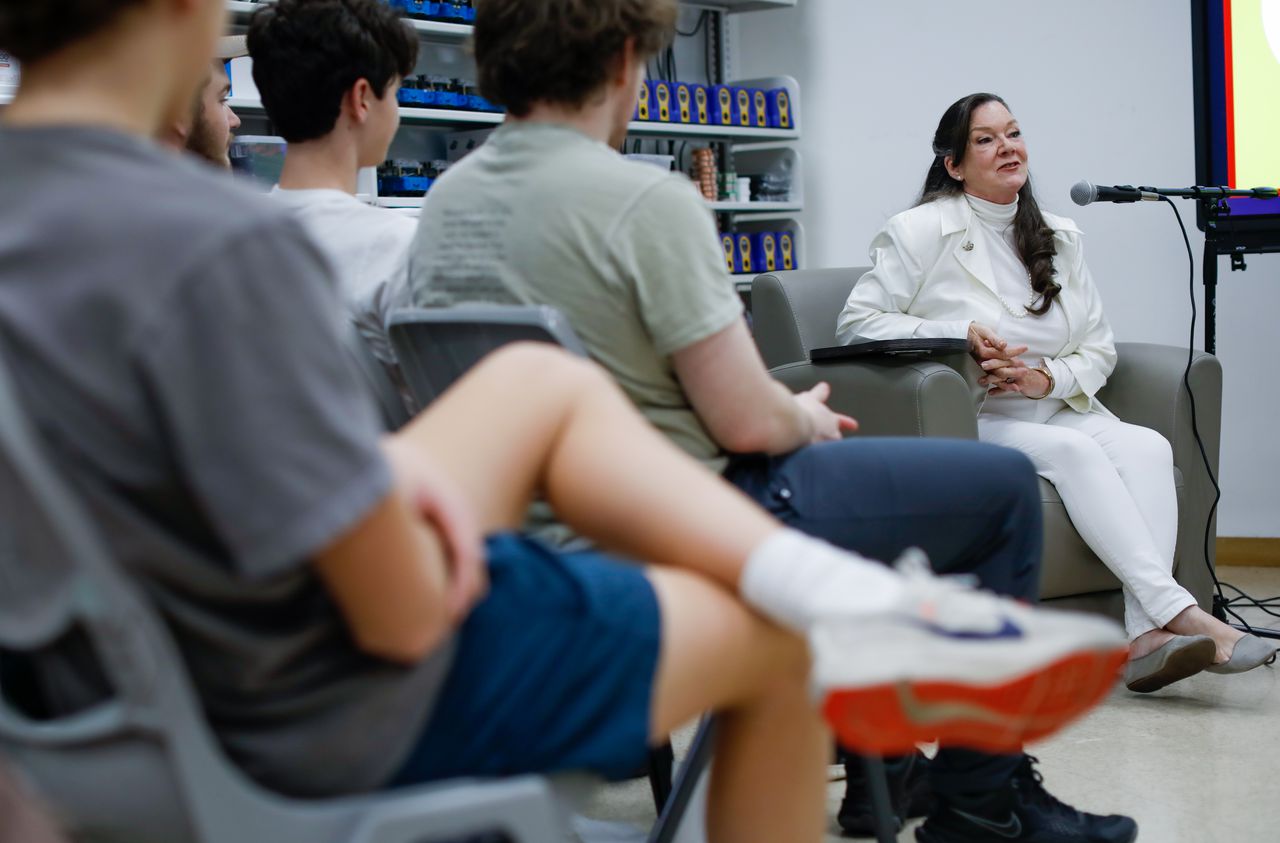
Birmingham native Mary Badham portrayed Jean Louise “Scout” Finch in the film “To Kill a Mockingbird. She was nominated for an Academy Award for Best Supporting Actress for the role. She’s pictured giving a talk to students at the Birmingham Public Library, Tuesday, September 19, 2023. (Tamika Moore/AL.com)
When people come up to you after the show, or when you talk to students, is there something they always ask you?
“What was it like working with Gregory Peck?” Every time. And the answer is: He was wonderful. What you see up on the screen in “Mockingbird” is what you got at home. He was funny. He was intelligent. He was extremely intelligent, hardworking, I mean, he was a professional actor. When he did a role, like when he had to do “MacArthur,” he did in-depth study on (U.S. Gen. Douglas) MacArthur.
It was so funny, because (Peck’s wife) Veronique, they were looking for a house, a new house, and they found this house that she wanted, gorgeous. So she called him and said, “I found a house, but we have to go look at it today, they’ve got somebody else, blah, blah, blah.” And he goes, “But I’m still working.” But she goes, “Please, please, you have to come.” So at lunch break, he jumps in the car and runs to this house. He’s walking through the house, but he didn’t even remember what the house looked like when he left. He was still in “MacArthur” mode, and he’s like, “Buy it!”
He was very kind, very giving. Excellent to work with, from an acting point of view. He had patience. It’s not easy, working with children all the time. We were pretty good, because we were newbies. So we didn’t give him any flak at all, I don’t think. He loved Phillip (Alford, who played Scout’s brother, Jem Finch), because they could play chess. He was a very good chess player. So Atticus and Phillip would play chess. There’s photographs of them playing chess together, back behind the scenes.
Is it true that you always call Gregory Peck “Atticus”?
I do. He’ll always be my Atticus, because Mr. Peck was too formal; we were too close for that. I used to go home to their house on the weekends, so that we would get that bond, so we would seal that bond. And it lasted a lifetime. Whenever I go to LA, if I can’t stay with family, then I’m staying with Cecilia, his daughter.
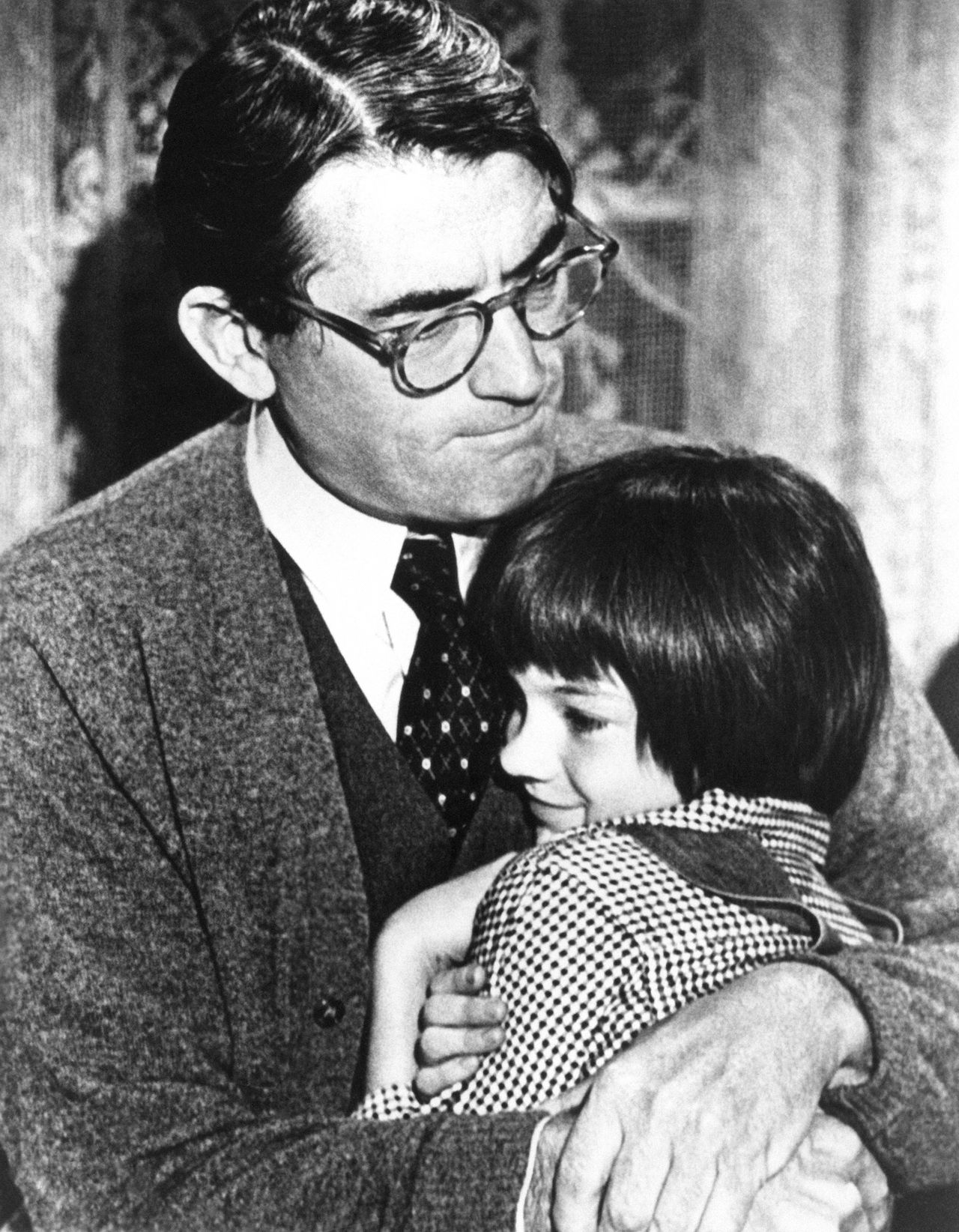
Gregory Peck embraces Alabama native Mary Badham, then age 9, in the 1962 movie version of “To Kill a Mockingbird.” (AP Photo)
It’s fair to say you’ve had an exceptional life?
Yes. I’m very thankful for it.
Do you think fate brought you to “Mockingbird”? Or was it something else?
I think this was God’s picture. I really do. That’s my belief. I think He had something He wanted to say, and he wanted to say it, and he said it through Harper Lee. And because we still haven’t learned these lessons, and evidently, I’m the person He wants to have out here doing this. I just hope that I can do the best that I can.
Did you ever have moment where you thought, “Oh, ‘To Kill a Mockingbird,’ I’m so sick of all that”?
Oh, I did when I was a kid, yeah. Because as a child, what’s the most important thing to you as a child? Your friends. Well, because I had been in “Mockingbird,” I never knew if somebody wanted to be friends with me because they liked me, because of who I am, or “That’s little Mary Badham, and she was in ‘To Kill a Mockingbird.’” I could never trust those friendships. So that was hard, and I learned to stop trusting people as a child.
How did that work itself out?
Because I’m a people person. I like people. And if I found people that I liked, that’s great.
Will you do more theater? Are you now a theater bug?
I wouldn’t say I’m a theater bug. I think, I enjoy doing this. If there was another something that came up, it would have to be an important piece for me to do it.
IF YOU GO: The national Broadway tour of “To Kill a Mockingbird” comes to Birmingham on Nov. 14-19 at the BJCC Concert Hall. Eight performances are planned that week, Tuesday through Sunday. Prices range from $34-$94, plus service charges, via Ticketmaster. The series is presented by American Theatre Guild at the 3,000-seat concert hall, which is part of the Birmingham-Jefferson Convention Complex downtown. The concert hall is off 11th Avenue North, between 19th and 22nd streets North.
In 2024, “To Kill a Mockingbird” will stop in Auburn at the Gogue Performing Arts Center (Feb. 13-14) and in Huntsville at the Von Braun Center Concert Hall (Feb. 16-18).
